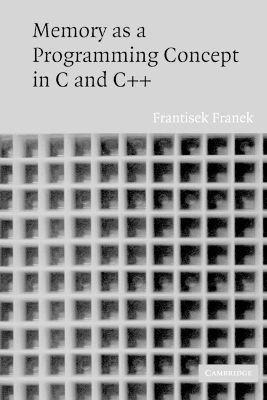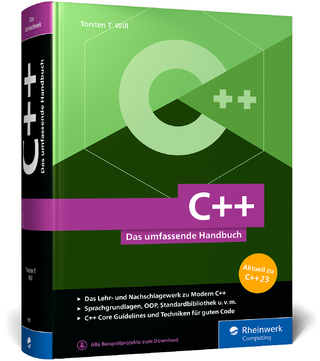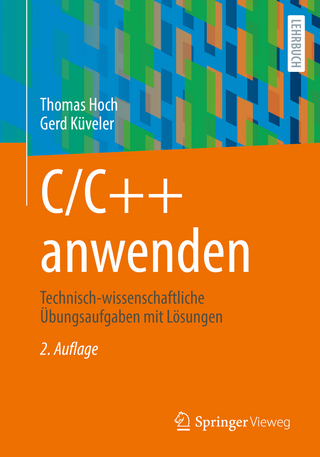
Memory as a Programming Concept in C and C++
Seiten
2003
Cambridge University Press (Verlag)
978-0-521-52043-0 (ISBN)
Cambridge University Press (Verlag)
978-0-521-52043-0 (ISBN)
This 2004 book provides students and professional programmers with a concise yet comprehensive view of the role memory plays in all aspects of programming and program behaviour. Describes the techniques and tools to deal with the problems related to memory and its effective use, assuming only a basic knowledge of C or C++.
The overwhelming majority of bugs and crashes in computer programming stem from problems of memory access, allocation, or deallocation. Such memory related errors are also notoriously difficult to debug. Yet the role that memory plays in C and C++ programming is a subject often overlooked in courses and in books because it requires specialised knowledge of operating systems, compilers, computer architecture in addition to a familiarity with the languages themselves. Most professional programmers learn entirely through experience of the trouble it causes. This 2004 book provides students and professional programmers with a concise yet comprehensive view of the role memory plays in all aspects of programming and program behaviour. Assuming only a basic familiarity with C or C++, the author describes the techniques, methods, and tools available to deal with the problems related to memory and its effective use.
The overwhelming majority of bugs and crashes in computer programming stem from problems of memory access, allocation, or deallocation. Such memory related errors are also notoriously difficult to debug. Yet the role that memory plays in C and C++ programming is a subject often overlooked in courses and in books because it requires specialised knowledge of operating systems, compilers, computer architecture in addition to a familiarity with the languages themselves. Most professional programmers learn entirely through experience of the trouble it causes. This 2004 book provides students and professional programmers with a concise yet comprehensive view of the role memory plays in all aspects of programming and program behaviour. Assuming only a basic familiarity with C or C++, the author describes the techniques, methods, and tools available to deal with the problems related to memory and its effective use.
1. Introduction; 2. From source file to executable file; 3. Variables and objects, pointers and addresses; 4. Dynamic allocation and deallocation of memory; 5. Functions and function calls; 6. One-dimensional arrays and strings; 7. Multi-dimensional arrays; 8. Classes and objects; 9. Linked data structures; 10. Memory leaks and their debugging; 11. Programs in execution - processes and threads.
| Erscheint lt. Verlag | 17.11.2003 |
|---|---|
| Zusatzinfo | Worked examples or Exercises |
| Verlagsort | Cambridge |
| Sprache | englisch |
| Maße | 152 x 227 mm |
| Gewicht | 365 g |
| Themenwelt | Informatik ► Programmiersprachen / -werkzeuge ► C / C++ |
| ISBN-10 | 0-521-52043-6 / 0521520436 |
| ISBN-13 | 978-0-521-52043-0 / 9780521520430 |
| Zustand | Neuware |
| Haben Sie eine Frage zum Produkt? |
Mehr entdecken
aus dem Bereich
aus dem Bereich
Technisch-wissenschaftliche Übungsaufgaben mit Lösungen
Buch | Softcover (2023)
Springer Vieweg (Verlag)
37,99 €


